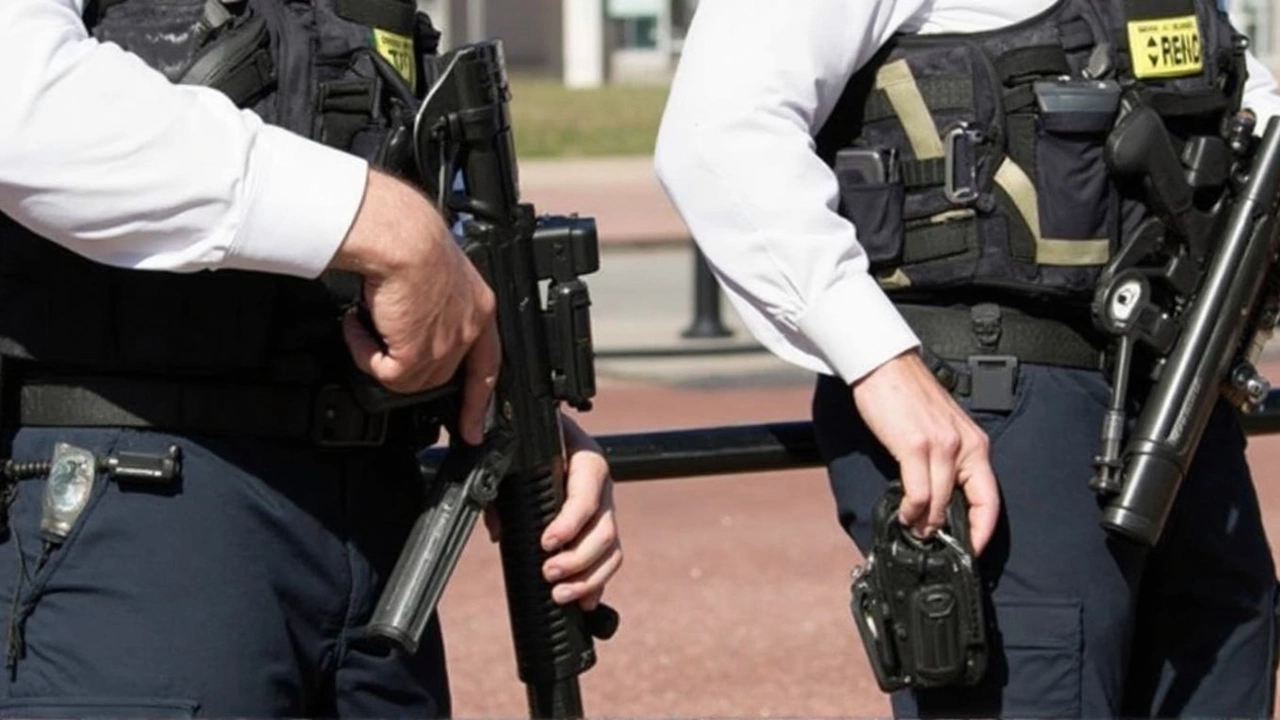New Anonymity Protections for Firearms Officers Ignite Debate
The UK government is reworking how police are held accountable, and the biggest headline is the plan to keep firearms officers anonymous during criminal court proceedings—unless they're convicted. The idea, announced by Home Secretary Yvette Cooper in October 2024, is pretty straightforward: shield officers and their families from threats and harassment in high-anxiety cases that often spill into the public spotlight.
This presumed anonymity means that, from the first rumblings of a case until a decision comes down, the names of those officers won’t be splashed across newspapers or social media. Only if they’re actually convicted would the public learn their identities. It’s a move sparked by fears that naming officers too soon can trigger intense online abuse, and sometimes even physical threats, against them and their families. For some families, this kind of stress has reportedly driven them to relocate or go into hiding while investigations drag on.
Still, not everyone's sold. Critics warn that these anonymity protections might tip the scales too far, undermining the principle of transparency—especially after a run of recent court cases spotlighted police use of force. Watchdog groups argue that hiding officers' names could make it harder for people to trust investigations and for victims' families to get answers. The debate is heating up, especially after last year’s controversial acquittals in police-involved shootings that shook public confidence.
Stricter Vetting and Faster Disciplinary Investigations
The shake-up doesn’t stop at anonymity. The reforms would impose tougher vetting requirements for all serving police, so those without up-to-date clearance could lose their jobs. If you’re an officer who slips through vetting or fails to meet evolving standards, you’ll face automatic dismissal. After some high-profile scandals involving officers slipping past old checks, the change is being pitched as non-negotiable.
Misconduct cases have long been bogged down by drawn-out investigations and a backlog of files clogging the system. Cooper’s plan attacks this by tightening up how cases move from the Independent Office for Police Conduct (IOPC) to the Crown Prosecution Service (CPS). From now on, IOPC referrals will have to hit the same legal thresholds as CPS charges to prevent baseless complaints from clogging up the courts. The IOPC is also being told to send tough cases to the CPS as soon as possible, not just after they’ve tied up every loose end. The hope is this clears a logjam of cases—some of which have stalled for years—while giving officers and the public speedier answers.
Another big tweak: chief constables will get a formal chance to challenge disciplinary outcomes by appealing to Police Appeal Tribunals. Until now, if a disciplinary panel handed down a ruling a chief constable disagreed with, their options were limited. This new system gives senior police bosses more say, meant to rein in a few high-profile cases where dismissed officers have returned to duty, leaving chiefs handcuffed.
The reforms come after talks with big players across policing: the National Police Chiefs’ Council, Metropolitan Police, College of Policing, the IOPC, and the CPS. Cooper’s team says these changes reflect months of back-and-forth with front-line cops and the legal teams that keep the system running.
But there’s an elephant in the room. The Home Office is also launching a rapid review of the rules for police use of force and for inquests into deaths involving officers. This is a flashpoint. Some lawyers and campaigners say reopening these standards after recent hard-fought court cases risks undoing progress and may put fairness on the line.
The policing landscape is shifting, with the government arguing that reform will get investigations moving faster, protect frontline officers, and chip away at growing public skepticism. But sorting out the balance—between protecting those in uniform and ensuring true accountability—remains a challenge that’s nowhere near solved.

Arlen Fitzpatrick
My name is Arlen Fitzpatrick, and I am a sports enthusiast with a passion for soccer. I have spent years studying the intricacies of the game, both as a player and a coach. My expertise in sports has allowed me to analyze matches and predict outcomes with great accuracy. As a writer, I enjoy sharing my knowledge and love for soccer with others, providing insights and engaging stories about the beautiful game. My ultimate goal is to inspire and educate soccer fans, helping them to deepen their understanding and appreciation for the sport.
view all postsWrite a comment